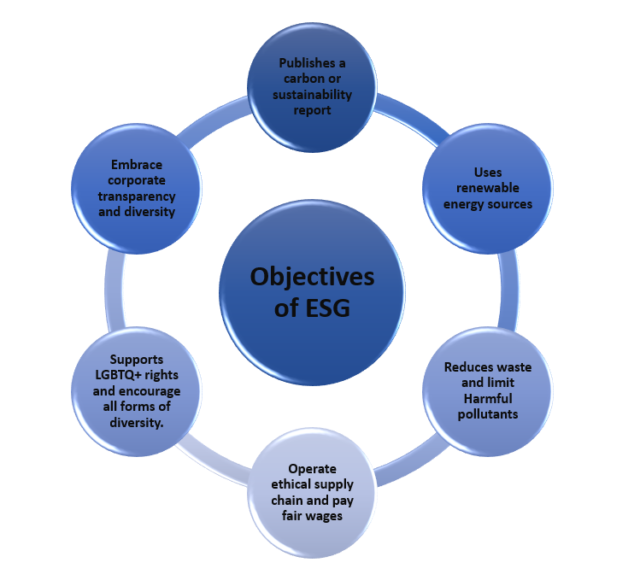Environmental, social, and governance (ESG) investing refers to a set of standards for a company’s behaviour used by socially conscious investors to screen potential investments.
Environmental criteria consider how a company safeguards the environment, including corporate policies addressing climate change, for example. Social criteria examine how it manages relationships with employees, suppliers, customers, and the communities where it operates. Governance deals with a company’s leadership, executive pay, audits, internal controls, and shareholder rights.
ESG investing is sometimes referred to as sustainable investing, Socially responsible investing(SRI) or impact investing. To assess a company based on ESG criteria, investors look at a broad range of behaviours and policies.
Adopting ESG principles means that corporate strategy focuses on the three pillars of the environment, social, and governance. This means taking measures to lower pollution, CO2 output, and reduce waste. It also means having a diverse and inclusive workforce, at the entry-level and all the way up to the board of directors.
Trillium’s ESG criteria preclude investments in the following:
- Companies that operate in higher-risk areas or have exposure to coal or hard rock mining, nuclear or coal power, private prisons, agricultural biotechnology, tobacco, tar sands, or weapons and firearms.
- Companies involved in major or recent controversies over human rights, animal welfare, environmental concerns, governance issues, or product safety.


WHY ESG IN INDIA?
India, being a place with a vast variety of markets, is aggressively competitive in nature. To get the benefit over others, having a competitive advantage has become a primary condition.
By embracing ESG, one can:
- Drive Innovation
- Enhance Resilience
- Strengthen Brand Value
- Promote Sustainability
HOW ESG INVESTMENT GROWING IN INDIA ?
ESG investing revolves around evaluating companies based on their environmental impact, social responsibility, and governance practices. It goes beyond financial performance and considers non-financial factors that can influence a company’s long-term success and societal impact.
ESG investing in India presents a range of opportunities and benefits for investors. By investing in companies with strong ESG practices, investors can align their portfolios with sustainability goals while potentially mitigating risks associated with environmental and social factors. Moreover, ESG-focused companies often exhibit better long-term performance and resilience, making them attractive investment options.
WHAT ARE THE CHALLENGES FOR ESG INVESTING IN INDIA ?
Despite the opportunities for ESG investment and a lot of benefits, here, also stays some challenges for the ESG investment and its growth. Utmost challenges are as follows:
- Availability and standardization of ESG data
- Lack of Top management support
- Lack of knowledge among employers and employees
- Difficulty of converting awareness into action
- Fear of new assessments and failure
- High cost and lowered profits
CONCLUSION:
At the heart of ESG, investing lies a dichotomy between sustainability and profitability. Many researchers claim that it is possible to obtain both at the same time, popularizing the “doing good and doing well” motto. When we span hundreds of articles, the conclusions are not clear-cut, which is the conclusion of most meta-studies. But at the same time, if SRI is (on average) not costly and may be socially beneficial, then it almost qualifies as ethical free lunch. This is the most salient takeaway from the book. Over the past two decades, there is no strong indisputable evidence that sustainable investing is financially detrimental, which is why investors who care (even remotely) about the long-term future should not hesitate one second to embrace SRI.
Blog By : Celin Chopra



